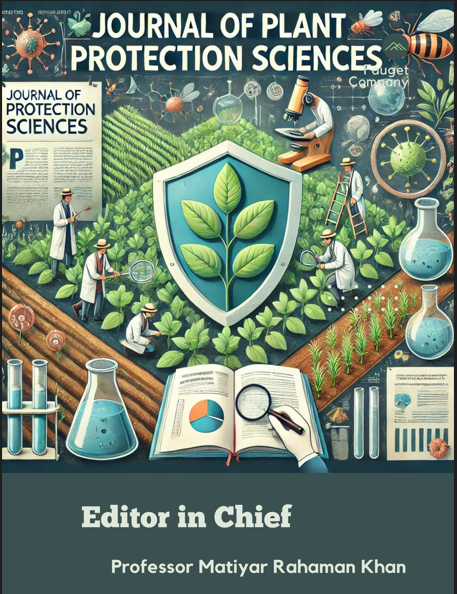Sylepta sp. (Lepidoptera: Pyralidae) - a new pest of Soalu (Litsaea monopetala) in Kalimpong Hills
DOI:
https://doi.org/10.48165/Keywords:
abdominal prolegs, Lauraceae, Brahmaputra valleyAbstract
Muga culture is an age-old practice in the Brahmaputra valley of Assam. During the year 2010, muga sericulture has been intro duced in Kalimpong hills (latitude 27°06′N, longitude 88°47′E, 1247 m above msl) for pro duction of seed crop which is adversely af fected in Assam due to increase of tempera ture as a result of global warming. Soalu [Litsaea monopetala (Roxb) Pearson] (Family: Lauraceae) is one of the primary food plants of muga silkworm (Antheraea as samensis Helfer). It grows abundantly in the hills of Kalimpong. Muga food plants are usu ally attacked by many pests like shoot borer, trunk borer, leaf miners, leaf galls and mealy bugs (1,2). Incidence of pest adversely affects leaf yield and quality. During the year 2011, a new pest infestation caused by leaf roller was found severely affected foliage of soalu plants in a place (2702'35''N/88027'57"E) of Kalim pong Hills. The aim of this paper is to high light important observations of the new pest affected the Soalu food plant of muga silk worm in the Kalimpong hills. Pest damage symptoms, larval, pupal character and adult stage were photographed by Kodak AF 3X10.3 mega pixels camera. For identifica tion of the pest, adult moths were dried in oven and kept in glass vials and despatched to the Zoological Survey of India, Central Ento mological Laboratory Kolkata (India) for identification. It was observed that leaf roller incidence appeared on 2nd week of July and continued up to September. Caterpillars at tacked the top leaf of the branch and formed a protective shelter of leaves that they rolled and web together with silken thread (Fig. 1a). Caterpillar feed rolled leaves from the margin. In each rolled leaves, 4-6 nos
References
1. Rajesh Kumar Rajkhowa G Dhar NJ Rajan RK. 2011 Munis Entomology and Zoology. 6(1):173-75.
2. Patnaik RK. 2008 Sericulture Manual. Biotech Books, Delhi. 271pp.

